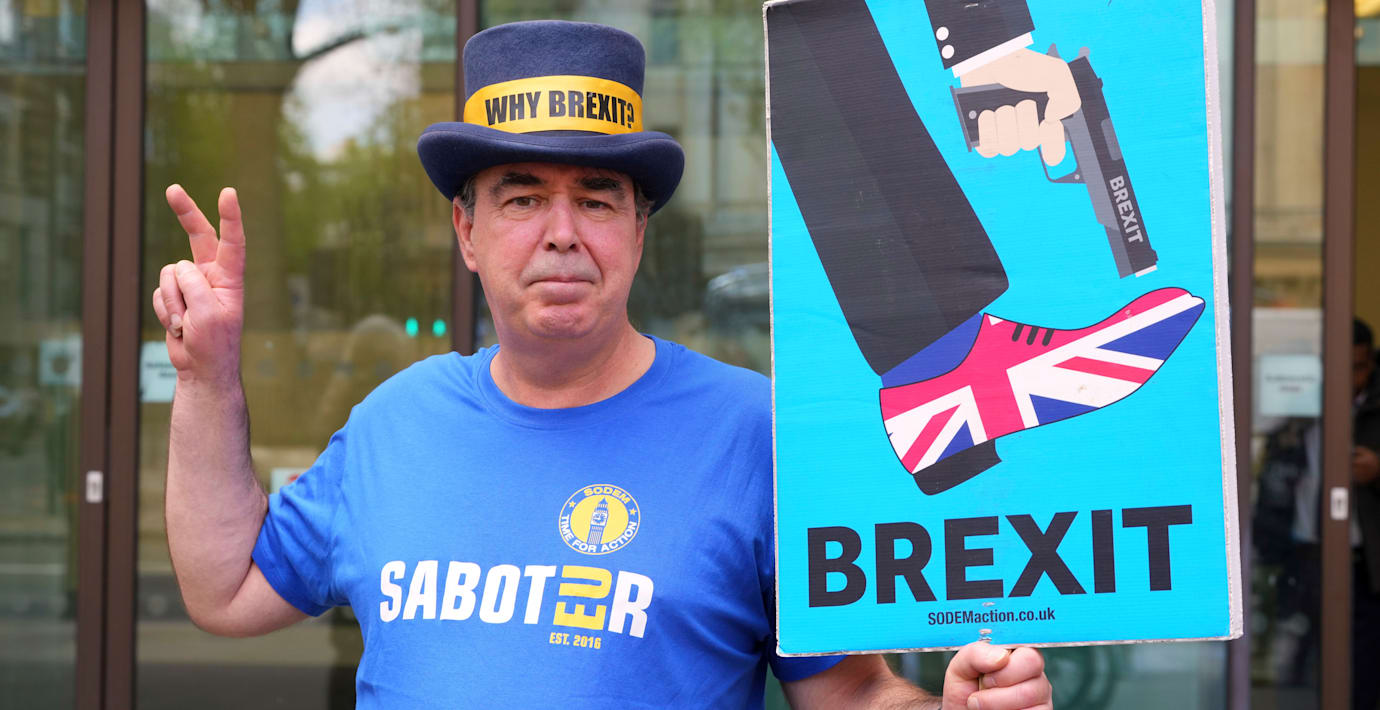Wikipedia (en)
Brexit (; a portmanteau of "Britain" and "Exit") was the withdrawal of the United Kingdom (UK) from the European Union (EU).
Brexit officially took place at 23:00 GMT on 31 January 2020 (00:00 1 February 2020 CET). The UK, which joined the EU's precursors the European Communities (EC) on 1 January 1973, is the only member state to have withdrawn from the EU, although the territories of Algeria (formerly part of France) left in 1976 and Greenland (part of the Kingdom of Denmark) previously left the EC in 1985. Following Brexit, EU law and the Court of Justice of the European Union no longer have primacy over British laws but the UK remains legally bound by obligations in the various treaties it has with other countries around the world, including many with EU member states and indeed with the EU itself. The European Union (Withdrawal) Act 2018 retains relevant EU law as domestic law, which the UK can amend or repeal.
The EU and its institutions developed gradually after their establishment. Throughout the period of British membership, Eurosceptic groups had existed in the UK, opposing aspects of the EU and its predecessors. The Labour prime minister Harold Wilson's pro-EC government held a referendum on continued EC membership in 1975, in which 67.2 per cent of those voting chose to stay within the bloc. Despite growing political opposition by a minority of UK politicians to further European integration aimed at "ever closer union" between 1975 and 2016, notably from factions of the Conservative Party in the 1980s to 2000s, no further referendums on the issue were held.
By the mid 2010s, the growing popularity of the UK Independence Party (UKIP), as well as pressure from Eurosceptics in his own party, persuaded the Conservative prime minister David Cameron to promise a referendum on British membership of the EU if his government were re-elected. Following the 2015 general election, which produced a small but unexpected majority for the governing Conservative Party, the promised referendum on continued EU membership was held on 23 June 2016. Notable supporters of the Remain campaign included Cameron, the future prime ministers Theresa May, Liz Truss, and Keir Starmer, and the ex–prime ministers John Major, Tony Blair, and Gordon Brown; notable supporters of the Leave campaign included the future prime ministers Boris Johnson and Rishi Sunak. The electorate marginally voted to leave the EU with a 51.9% share of the vote, with all regions of England and Wales except London voting in favour of Brexit, and Scotland and Northern Ireland voting against. The result led to Cameron's sudden resignation, his replacement by Theresa May, and four years of negotiations with the EU on the terms of departure and on future relations, completed under a Boris Johnson government, with government control remaining with the Conservative Party during this period.
The negotiation process was both politically challenging and deeply divisive within the UK, leading to two snap elections in 2017 and 2019. One proposed deal was overwhelmingly rejected by the British parliament, causing great uncertainty and leading to postponement of the withdrawal date to avoid a no-deal Brexit. The UK left the EU on 31 January 2020 after a withdrawal deal was passed by Parliament, but continued to participate in many EU institutions (including the single market and customs union) during an eleven-month transition period during which it was hoped that details of the post-Brexit relationship could be agreed and implemented. Trade deal negotiations continued within days of the scheduled end of the transition period, and the EU–UK Trade and Cooperation Agreement was signed on 30 December 2020. The effects of Brexit in the UK are in part determined by the cooperation agreement, which provisionally applied from 1 January 2021, until it formally came into force on 1 May 2021.



